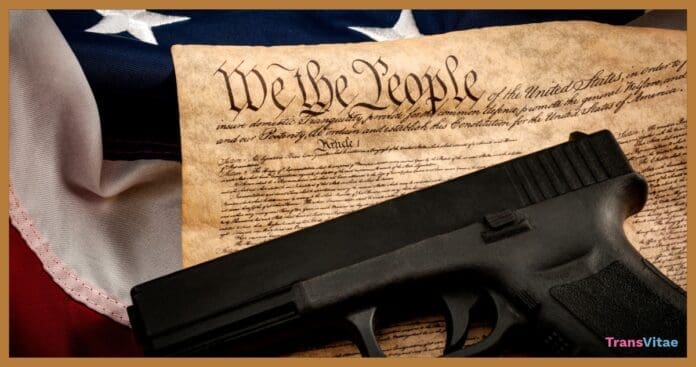In a development marking another sharp turn in the rollback of transgender rights under President Trump’s second term, senior officials within the Department of Justice (DOJ) are reportedly discussing measures that would restrict transgender Americans from purchasing firearms. The news has revived fears that transgender people are once again being targeted by sweeping government policies.
According to multiple U.S. media sources, these discussions have been triggered by a recent mass shooting at a church in Minnesota carried out by a reported transgender individual. The DOJ is exploring whether identifying as transgender could be considered grounds to classify a person as “mentally unfit,” thereby disqualifying them under existing federal rules that prohibit gun ownership for those deemed mentally ill.
Justice Department officials are said to be consulting with the Office of Legal Counsel and the Attorney General’s office to determine how transgender identity might fit into current mental health disqualification frameworks. However, no formal policy has yet been proposed or announced.
This move represents a troubling intersection between the Republican Party’s defense of Second Amendment rights and its escalating efforts to erode transgender protections. Civil liberties advocates warn that taking the DOJ’s discussions further would enshrine an unconstitutional, identity-based restriction. Gun rights groups, including the Gun Owners of America, have also pushed back, emphasizing that mental fitness must be determined on an individual basis, not through categorical bans.
RELATED: The Second Amendment Debate and Transgender Americans
Critics argue that the proposal dangerously mischaracterizes transgender identity as a mental illness. Data from a range of expert bodies, including the Williams Institute and the Gun Violence Archive, indicate that transgender individuals account for a vanishingly small portion, roughly 0.1 percent, of mass shooters over the past decade. They are far more likely to be victims of violence rather than perpetrators.
LGBTQ+ advocacy groups, including GLAAD, have strongly condemned the news. They argue that weaponizing mental health statutes against transgender people is not only baseless but also deepens stigma and distracts from effective policy approaches to reducing gun violence. Legal experts also note that any attempt to impose broad disqualifications would face formidable constitutional challenges, particularly under the Due Process Clause and Equal Protection principles.
This discussion comes amid a broader pattern of anti-trans action by the Trump administration since its return to office in January 2025. Those actions have included executive orders stripping federal recognition of gender identity, banning transgender individuals from military service, and eliminating gender-affirming care funding.
Despite these concerns, a DOJ spokesperson noted that no formal proposal has been enacted and the department is still evaluating its options. Lawmakers, civil rights groups, and legal observers are closely watching any potential shifts in policy.
As transgender Americans already face disproportionately high rates of harassment, violence, and legal discrimination, adding barriers to gun ownership would compound existing injustices and weaken community safety. In a nation where gun rights are deeply tied to personal autonomy, these discussions, if they move forward, would signal a dangerous precedent in targeting a historically marginalized group.


